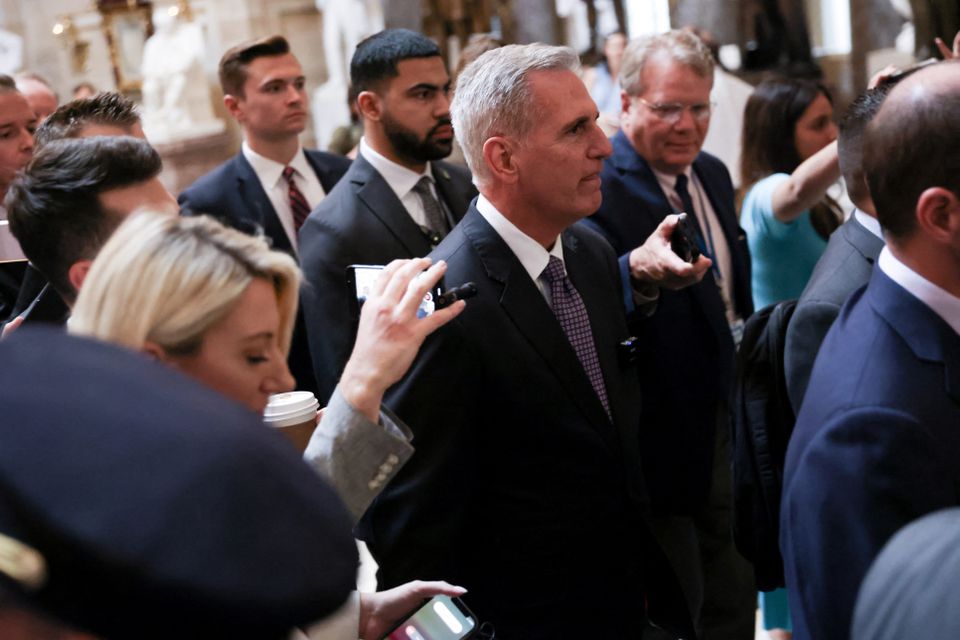A divided U.S. House of Representatives passed a bill to suspend the $31.4 trillion debt ceiling on Wednesday, with majority support from both Democrats and Republicans to overcome opposition led by hardline conservatives and avoid a catastrophic default.
The Republican-controlled House voted 314-117 to send the legislation to the Senate, which must enact the measure and get it to President Joe Biden’s desk before a Monday deadline, when the federal government is expected to run out of money to pay its bills.
“This agreement is good news for the American people and the American economy,” Biden said after the vote. “I urge the Senate to pass it as quickly as possible so that I can sign it into law.”
The measure, a compromise between Biden and House Speaker Kevin McCarthy, drew opposition from 71 hardline Republicans. That would normally be enough to block partisan legislation, but 165 Democrats – more than the 149 Republicans who voted for it – backed the measure and pushed it through.
Republicans control the House by a narrow 222-213 majority.
The legislation suspends – in essence, temporarily removes – the federal government’s borrowing limit through Jan. 1, 2025. The timeline allows Biden and Congress to set aside the politically risky issue until after the November 2024 presidential election.
It would also cap some government spending over the next two years, speed up the permitting process for certain energy projects, claw back unused COVID-19 funds and expand work requirements for food aid programs to additional recipients.
Hardline Republicans had wanted deeper spending cuts and more stringent reforms.
“At best, we have a two-year spending freeze that’s full of loopholes and gimmicks,” said Representative Chip Roy, a prominent member of the hardline House Freedom Caucus.
Progressive Democrats – who along with Biden had resisted negotiating over the debt ceiling – oppose the bill for a few reasons, including new work requirements from some federal anti-poverty programs.








